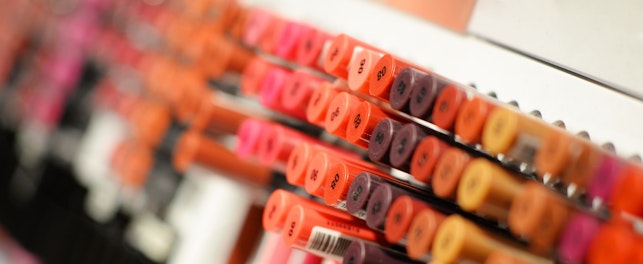SG 16/23
Several states in the US have introduced bills to regulate PFAS in a range of consumer products. The scope of products and their requirements are jurisdiction dependent.
Per- and polyfluoroalkyl substances (PFAS), which include perfluorooctanoic acid (PFOA) and perfluorooctane sulfonic acid (PFOS), are a diverse group of synthetic chemicals that has been used in industry and consumer goods for many years. Their properties and function to repel water, grease, oil and/or dirt enable them to be used in the manufacture of a wide range of everyday consumer goods, including after treatments, apparel, carpets and rugs, cosmetics, firefighting foam, food contact materials and articles, non-stick cookware, ski wax and upholstered furniture.
Over the years, PFAS have increasingly been regulated due to their toxic effects and negative impacts on the environment. In the United States (US), a host of jurisdictions across the nation have implemented measures to regulate specific PFAS chemicals or PFAS as a family of chemicals in consumer goods. These include, but are not limited to California, Colorado, Connecticut, Hawaii, Maine, Maryland, Minnesota, New York, San Francisco, Santa Rosa, Rhode Island, Vermont and Washington. Furthermore, the scope of regulated products and their requirements for PFAS are jurisdiction dependent.
Since the beginning of 2023, a number of bills have been introduced at the state level to restrict/prohibit PFAS in a range of products.
Highlights of several of these bills are summarized in Table 1.
| Jurisdiction (Bill) | Scope | Requirement for PFAS | Proposed Effective Date |
|---|---|---|---|
| Hawaii (SB 504/HB 748)1 |
| Prohibited | December 31, 2026 |
| Iowa (HF 62)2 |
| Prohibited if intentionally added | January 1, 2024 |
| Prohibited if intentionally added | January 1, 2024 | |
| Prohibited if intentionally added | January 1, 2024 | |
| Minnesota (HF 372/SF 450) |
| Notification if product contains intentionally added PFAS | April 1, 2025, otherwise, within 30 days when product is first sold, offered for sale or distributed |
| Minnesota (HF 552) |
| Prohibited | January 1, 2025 |
| Minnesota (SF 669) |
| Prohibited | January 1, 2026 |
| Minnesota (SF 834/HF1000)3 |
| Notification if product contains intentionally added PFAS | January 1, 2025 |
| Prohibited if product contains intentionally added PFAS | January 1, 2025 | |
| Unless determined by rule that the use of PFAS is unavoidable, product is prohibited if it contains intentionally added PFAS | January 1, 2030 | |
| New Hampshire (HB 242) |
| Prohibited for food service businesses | January 1, 2024 |
| New Hampshire (HB 465) |
| Prohibited if intentionally added | July 1, 2025 |
| Prohibited if intentionally added | July 1, 2025 | |
| New York (A00994/A01322) |
| Prohibited if PFAS is intentionally added | January 1, 2025 |
| Prohibited if above a concentration to be established by regulation | By January 1, 2027 | |
| Prohibited if: 1) above a concentration to be established by regulation, or 2) intentionally added | January 1, 2028 | |
| New York (S 992) |
| Prohibited if intentionally added | December 31, 2023 |
| New York (SB 834) |
| Prohibited | December 31, 2026 |
| Rhode Island (HB 5086) |
| Prohibited to be labeled with the term ‘compostable’ if product contains more than 100 ppm total organic fluorine or violates the Toxic Packaging Reduction Act (Chapter 18.13 of title 23) | PASS |
| Rhode Island (S 0016)3 |
| Prohibited to be discharged if product contains intentionally added PFAS | January 1, 2024 |
| Prohibited | January 1, 2024 | |
| To identify priority product by category or use if it contains intentionally added PFAS | By January 1, 2025, and at least every three years after rulemaking and rule adoption within two years of the identification of priority products | |
| Prohibited | January 1, 2025 | |
| Prohibited if product contains intentionally added PFAS | January 1, 2026 | |
| Prohibited | January 1, 2026 | |
| Disclosure of intentionally added PFAS | January 1, 2026 | |
| Vermont (SB 25)4 |
| Prohibited if intentionally added | July 1, 2023 |
| Prohibited if intentionally added | July 1, 2023 | |
| Prohibited if intentionally added | January 1, 2026 | |
| Vermont (HB 50) |
| Prohibited to be labeled with the term ‘compostable’ if product contains more than 100 ppm total organic fluorine or exceeds a standard to be established by rule | PASS |
| Vermont (HB 152)5 |
| Prohibited if intentionally added | January 1, 2024 |
| Prohibited if intentionally added | July 1, 2030 | |
| Virginia (HB 1855) |
| Prohibited | PASS |
1Also regulates cosmetic and personal care products
2Also regulates flame retardants in upholstered furniture
3Also regulates cosmetics
4Also regulates a list of specified chemicals in cosmetic and menstrual products
5Also regulates pesticides and cosmetics
Table 1
It is important to note that the language in a bill may change as it proceeds in the legislature
SGS is committed to providing information about development in regulations for consumer products as complimentary services. Through a global network of laboratories, SGS provides a wide range of services including physical/mechanical testing, analytical testing and consultancy work for technical and non-technical parameters applicable to a comprehensive range of consumer products. Contact us for more information or visit our website. In the end, it’s only trusted because it’s tested.
© SGS Société Générale de Surveillance SA. This publication or website is a property of SGS Société Générale de Surveillance SA. All contents including website designs, text, and graphics contained herein are owned by or licensed to SGS Société Générale de Surveillance SA. The information provided is for technical and general information purposes only and offers no legal advice. The information is no substitute for professional legal advice to ensure compliance with the applicable laws and regulations. All information is provided in good faith “as is”, and SGS Société Générale de Surveillance SA makes no representation or warranty of any kind, express or implied, and does not warrant that the information will be error-free or meet any particular criteria of performance or quality.





